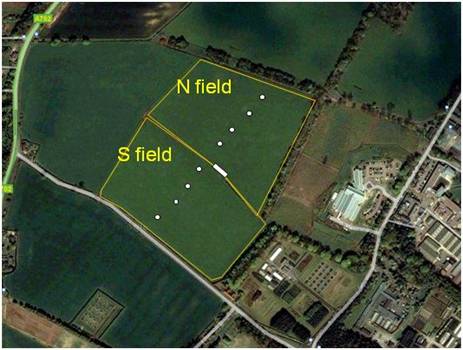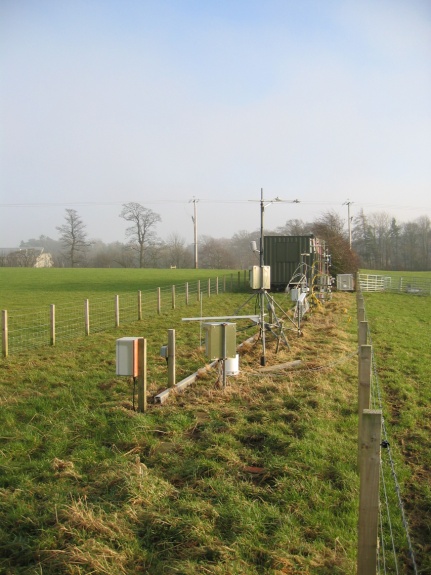OCE Postdoctoral Fellowship – Australian emissions of synthetic greenhouse gases
– Participate in state-of-the-art monitoring and modelling of Synthetic Greenhouse Gas emissions
– Conduct innovative research
– Join CSIRO – Australia’s premier science & technology research organisation
The Position
CSIRO offers PhD graduates an opportunity to launch their scientific careers through our Office of the Chief Executive (OCE) Postdoctoral Fellowships (PDF). Successful applicants will work with leaders in the field of science and receive personal development and learning opportunities.
Applications are invited for a 3-yr OCE PDF in estimating Australian emissions of synthetic greenhouse gases (SGGs). SGGs are Australia’s fastest growing (~10%/yr) greenhouse gas (GHG) emission sector and currently make up about 15% of Australia’s GHG forcing that contributes to global long-term climate change. The project will enable Australia to demonstrate the viability and efficacy of atmospheric verification as applied to national SGG emissions.
You will lead the team that installs and operates a new SGG monitoring facility at Lucas Heights, NSW (near Sydney), creating an Australian network for SGG observations, based on similar, existing SGG facilities at Aspendale, Victoria (near Melbourne) and Cape Grim, Tasmania. The network will monitor SGG emissions from New South Wales, Victoria, Australian Capital Territory, Tasmania and South Australia (responsible for 70-75% of Australian SGG emissions).
As part of the fellowship you will be exposed to leading-edge technologies in the measurement and emissions modelling of SGGs, for example as part of the international Advanced Global Atmospheric Gases Experiment (AGAGE). As such, the successful candidate should finish the appointment in an outstanding position to pursue a research career in this field, or related fields, either in Australia or overseas.
Specifically you will be responsible for:
– The establishment and operation of a state-of-the-art SGG monitoring facility at Lucas Heights.
– The coordinated operation of the Australian SGG monitoring network at Lucas Heights, Aspendale and Cape Grim.
– Assist with development and application of state-of-the-art inverse atmospheric modelling capability for GHG emissions.
– Produce high quality scientific and technical outputs including journal articles, conference papers and presentations, patents and technical reports.
– Develop innovative concepts and ideas for further research.
Location: Aspendale, Victoria
Salary: $81K to $88K plus up to 15.4% Superannuation Ref No: VIC13/03903
Tenure: 3 years
To be successful you will have:
– A PhD in Atmospheric chemistry or related fields.
– Demonstrated ability to conduct and develop innovative research in state-of-the-art atmospheric trace species measurements (preferably by gas chromatography-mass spectrometry).
– Demonstrated skills in the acquisition and processing of large data sets, with proficiency in at least one computer language such as IDL (Interactive Data Language), MATLAB, C/C++, Fortran 90/95, or LabView.
– Demonstrated ability to develop experimental plans which incorporate originality, creativity and innovation in solving problems, and which may introduce new directions and approaches.
– Demonstrated experience in working constructively with interdisciplinary teams.
– Evidence of strong communication skills, including the ability to publish/present results of scientific research in peer-reviewed journals, technical reports, conferences.
Owing to terms of the fellowship, candidates must not have more than 3 years of relevant Postdoctoral experience.
Who we are: The Commonwealth Scientific and Industrial Research Organisation (CSIRO) is one of the largest and most diverse scientific organisations in the world. By igniting the creative spirit of our people, we deliver great science and innovative solutions that benefit industry, society and the environment.
Applications close on the 4 November 2013 (at 11:30 AEST)
How to apply:
For further information (including the position description) and to apply online for the position of OCE Postdoctoral Fellowship ‐ Australian emissions of synthetic greenhouse gases please visit our website at CSIRO CAREERS (link below), choose “Jobs Search” and insert Reference Number VIC13/03903 where indicated.
CSIRO Careers website:
http://csiro.nga.net.au/cp/index.cfm?event=jobs.home


